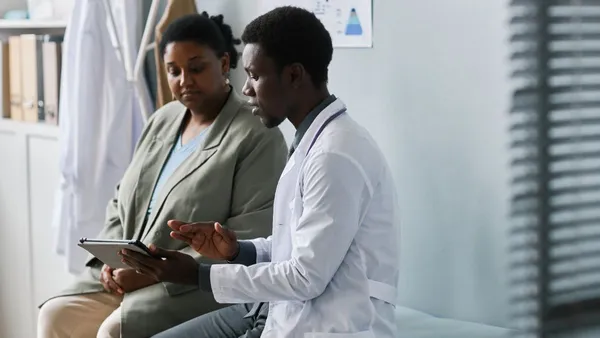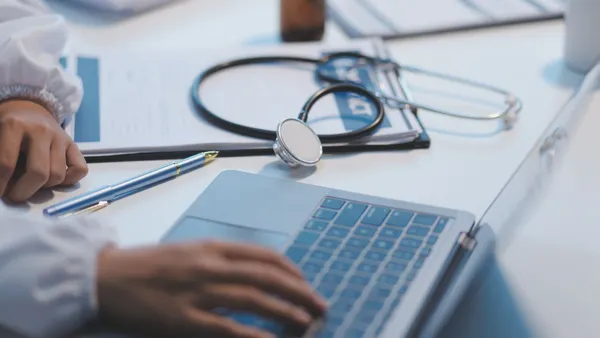Dive Brief:
- Smartphone app developers are using the phone habits of patients to help raise warning flags for depression, among other things, according to a Wall Street Journal report.
- One new app is Ginger.io, which is being recommended by doctors for women nearing the end of their pregnancies. That period of time is when the initial warning signs of postpartum depression develop, so the app is designed to analyze elements of a patient's life that are captured on her phone: how far she has traveled that day, how long she talks on her phone, how often she sends texts to family and friends and more. By collecting this data, the app's algorithm can match up behavioral patterns with warning signs of depression.
- Meanwhile, the NIH has given Harvard's School of Public Health $2.42 million to craft a smartphone app that will track sleep patterns based on when phone users lock and unlock their phones, while the University of Michigan is working on an app that can analyze your voice patterns to determine if you could be bipolar.
Dive Insight:
Our smartphones offer a unique window into our personal lives. Most people can't survive a day without their phones, at least not effectively. Using the data on our phones to predict potential mental health issues can be helpful, and might even change patients' lives for the better.
But there are still troubling questions around how this data will be used. Who will have access to the data? How will it be protected? Is there a potential that some people may use that data for purposes other than safeguarding a patient's health? Is it subject to HIPAA?
Before we rush into the embrace of these apps, we need to ensure that the data they traffic can be reasonably protected so it does not fall into the hands of someone who would compromise it for their own purposes.












